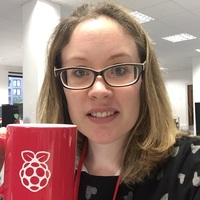Object-oriented Programming in Python: Create Your Own Adventure Game
Learn object-oriented programming principles by creating your own text-based adventure game in Python. Supported by Google.
56,879 enrolled on this course
Duration
4 weeksWeekly study
2 hours100% online
How it works
A fun introduction to object-oriented programming in Python
Object-oriented programming is a programming paradigm based on objects and data rather than actions and logic.
This online course will introduce you to the principles of object-oriented programming in Python, showing you how to create objects, functions, methods, and classes.
You’ll use what you learn to create your own text-based adventure game. You will have the chance to share your code with other learners, and see theirs.
If you’re an educator, you’ll also be able to develop ideas for using object-oriented programming in your classroom.
What topics will you cover?
- Introduce the principles of object-oriented programming in Python.
- Understand the difference between a function and an object.
- Create objects, functions, methods, and classes.
- Write a text-based adventure game.
- Extending other people’s classes, including inheritance and polymorphism.
- Share your code with other learners, and see theirs.
- Develop ideas for using object-oriented programming in the classroom.
When would you like to start?
Start straight away and join a global classroom of learners. If the course hasn’t started yet you’ll see the future date listed below.
Learning on this course
On every step of the course you can meet other learners, share your ideas and join in with active discussions in the comments.
What will you achieve?
By the end of the course, you‘ll be able to...
- Explore using objects in programming, and understand the difference between a function and an object.
- Develop your understanding of how writing your own class allows you to combine functions and data.
- Demonstrate extending other people’s classes, including inheritance and polymorphism.
- Produce a module to apply your learning of object oriented programming.
- Collaborate by sharing your code with other people.
Who is the course for?
This course is designed for people who are already familiar with Python programming and want to learn a different programming paradigm, understand and use existing libraries more effectively, or create code which is useful to other people.
It will be particularly useful for educators and students of a post-16 qualification.
What software or tools do you need?
Python 3







Comments
Post a Comment